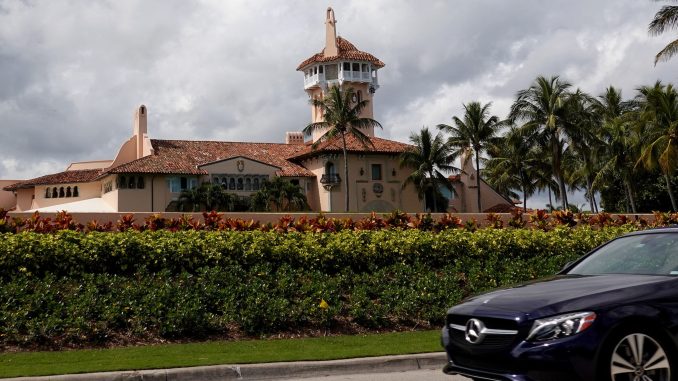
The National Archives and Records Administration is pushing back after revelations this week that the White House appears to have played a role in the FBI raid of former President Donald Trump’s Mar-a-Lago compound in Florida in August.
But America First Legal, which first obtained the records, said the belated response shows a misunderstanding of federal law, and that the agency “knowingly or unknowingly” was used by the Biden administration.
The key point of dispute pertains to the “special access request” provision of the Presidential Records Act.
“NARA’s allegations belie a misunderstanding of its statutory role in providing access to records under the Presidential Records Act (PRA) and indicate a belief that it was not used by the Biden administration (whether knowingly or unknowingly) as a means to an end,” Gene Hamilton, vice president and general counsel of America First Legal, told The Daily Signal in a statement.
In a response just after 5 p.m. Wednesday—more than 24 hours after the story was widely reported by multiple news outlets, including The Daily Signal—the National Archives disputed “recent press stories and social media posts” about the agency’s actions in relation to the investigation of documents held at Trump’s Florida home as “not accurate.”
Emails from the National Archives emerged from a public records request by America First Legal, released this week.
The messages indicate the FBI first obtained access to the 15 boxes of records at Mar-a-Lago through a “special access request” from President Joe Biden’s White House.
The “special access” provision of the Presidential Records Act specifies records to be made available “to an incumbent president if such records contain information that is needed for the conduct of current business of the incumbent president’s office and that is not otherwise available.”
However, the statement from National Archives contends the allegations confuse the agency’s “statutory role in providing access to records under the Presidential Records Act (PRA) with the [Justice Department] investigation and the FBI’s subsequent search of Mar-a-Lago.”
“NARA routinely makes presidential records in our legal custody available to all three branches of the federal government via the ‘special access’ provision of the PRA (44 U.S.C. 2205(2)),” the National Archives statement says. “This provision authorizes executive branch agencies, such as the Department of Justice, to make requests through the sitting president.”
The statement continues:
The PRA special access request process for the Mar-a-Lago boxes was described in the May 10, 2022, letter from acting Archivist of the United States Debra Steidel Wall to Evan Corcoran, one of former President Trump’s PRA representatives, which NARA posted on its website in August 2022.
This letter states that the Department of Justice asked “the president to request that NARA provide the FBI with access to the boxes at issue so that the FBI and others in the intelligence community could examine them. On April 11, 2022, the White House Counsel’s Office—affirming a request from the Department of Justice supported by an FBI letterhead memorandum—formally transmitted a request that NARA provide the FBI access to the 15 boxes for its review within seven days, with the possibility that the FBI might request copies of specific documents following its review of the boxes.
On Aug. 23, two weeks after the Aug. 8 FBI raid, NARA General Counsel Gary Stern wrote an email to agency staffers about the documents held by Trump.
“And this evening, The [Washington] Post just published a new story detailing an April 12 email that I sent to the Trump reps concerning the DOJ special access request and the overall issue,” the email said.
America First Legal’s Hamilton said the National Archives has limited authority to make presidential records in its custody available.
In addition to a “special access request,” the Presidential Records Act allows records to be made “pursuant to subpoena or other judicial process issued by a court of competent jurisdiction for the purposes of any civil or criminal investigation or proceeding,” Hamilton said, adding:
That is not what occurred here, based on all available information. NARA cannot mix-and-match its statutory authorities to drum up an after-the-fact justification for failing to follow the law.
“NARA failed to follow the law and permitted access to the records based on erroneous legal determinations made by the White House Counsel’s Office and the Office of Legal Counsel at the Department of Justice,” Hamilton said. “In short, NARA either should have known it had no authority to do what it did under the circumstances, or to use plain English, NARA got played.”
The White House, Justice Department, and FBI did not respond to inquiries from The Daily Signal for this article.
Have an opinion about this article? To sound off, please email letters@DailySignal.com and we’ll consider publishing your edited remarks in our regular “We Hear You” feature. Remember to include the url or headline of the article plus your name and town and/or state.

